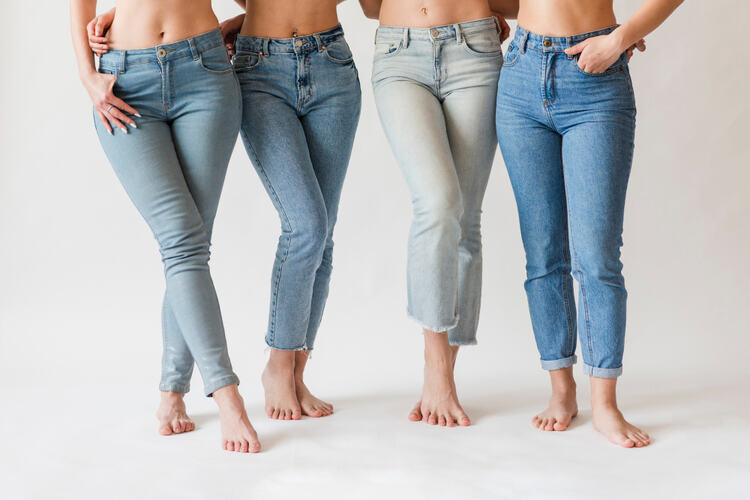
Denim jeans have long been a wardrobe staple, offering timeless style and versatility for women across the globe. However, as the fashion industry faces increasing scrutiny over its environmental impact, the spotlight has turned towards sustainable alternatives, including denim. In this article, we’ll delve into the environmental impact of denim production and explore the rising trend of sustainable denim jeans for women.
Environmental Impact of Denim Production
Traditional denim production is notorious for its detrimental effects on the environment. From the cultivation of cotton to the finishing processes, denim manufacturing involves significant water consumption, chemical usage, and generates substantial textile waste. The denim industry has been a contributor to pollution, water scarcity, and soil degradation.
Rise of Sustainable Denim

Amid growing environmental concerns, there has been a noticeable shift towards sustainable fashion. Consumers are increasingly conscious of the environmental and social impact of their clothing choices, leading to a surge in demand for eco-friendly alternatives. Sustainable denim offers a solution by incorporating practices that minimize harm to the environment and promote ethical production methods.
Organic Cotton Farming
One key aspect of sustainable denim production is the use of organic cotton. Unlike conventional cotton farming, which relies heavily on pesticides and synthetic fertilizers, organic cotton cultivation emphasizes natural methods that promote soil health and biodiversity. Organic cotton farming reduces the environmental footprint of denim jeans by eliminating harmful chemicals and conserving water resources.
Water-Saving Techniques
Water scarcity is a pressing issue in many denim-producing regions, prompting the adoption of water-saving techniques in manufacturing processes. Innovative methods such as laser technology, ozone treatment, and recycled water systems are being implemented to reduce water consumption and minimize wastewater discharge. Brands embracing these techniques are not only reducing their environmental impact but also setting new standards for sustainable denim production.
Recycled Denim
Another sustainable approach gaining traction is the use of recycled denim. By repurposing old jeans and textile waste, brands are able to create new denim products while reducing the need for virgin materials. Recycling denim not only conserves resources but also diverts textiles from landfills, contributing to a circular economy model. The result is denim jeans that are both stylish and eco-friendly, appealing to environmentally conscious consumers.
Sustainable Denim Brands

Several fashion brands have emerged as leaders in sustainable denim production, prioritizing ethical practices and transparency in their supply chains. From established labels to emerging designers, these brands are redefining the denim industry with their commitment to sustainability. Examples include:
- Levi’s: A pioneer in denim manufacturing, Levi’s has implemented water-saving techniques and launched initiatives to promote recycling and reuse.
- Everlane: Known for its transparent pricing and ethical sourcing, Everlane offers a range of sustainable denim options made from organic cotton and recycled materials.
- Nudie Jeans: With a focus on repair and reuse, Nudie Jeans encourages customers to extend the lifespan of their denim through repair services and recycling programs.
Consumer Awareness
As consumers, we hold the power to drive positive change in the fashion industry through our purchasing decisions. By choosing sustainable denim jeans, we can support brands that prioritize environmental and social responsibility. When shopping for denim, look for certifications such as GOTS (Global Organic Textile Standard) and BCI (Better Cotton Initiative), which indicate a commitment to sustainability. Additionally, consider the durability and longevity of denim products to minimize waste and maximize value.
Conclusion
Sustainable denim jeans offer a compelling solution to the environmental challenges posed by traditional denim production. By embracing eco-friendly manufacturing processes and supporting ethical brands, women can make a fashion statement while minimizing their carbon footprint. Let’s pave the way for a more sustainable future one pair of jeans at a time.



